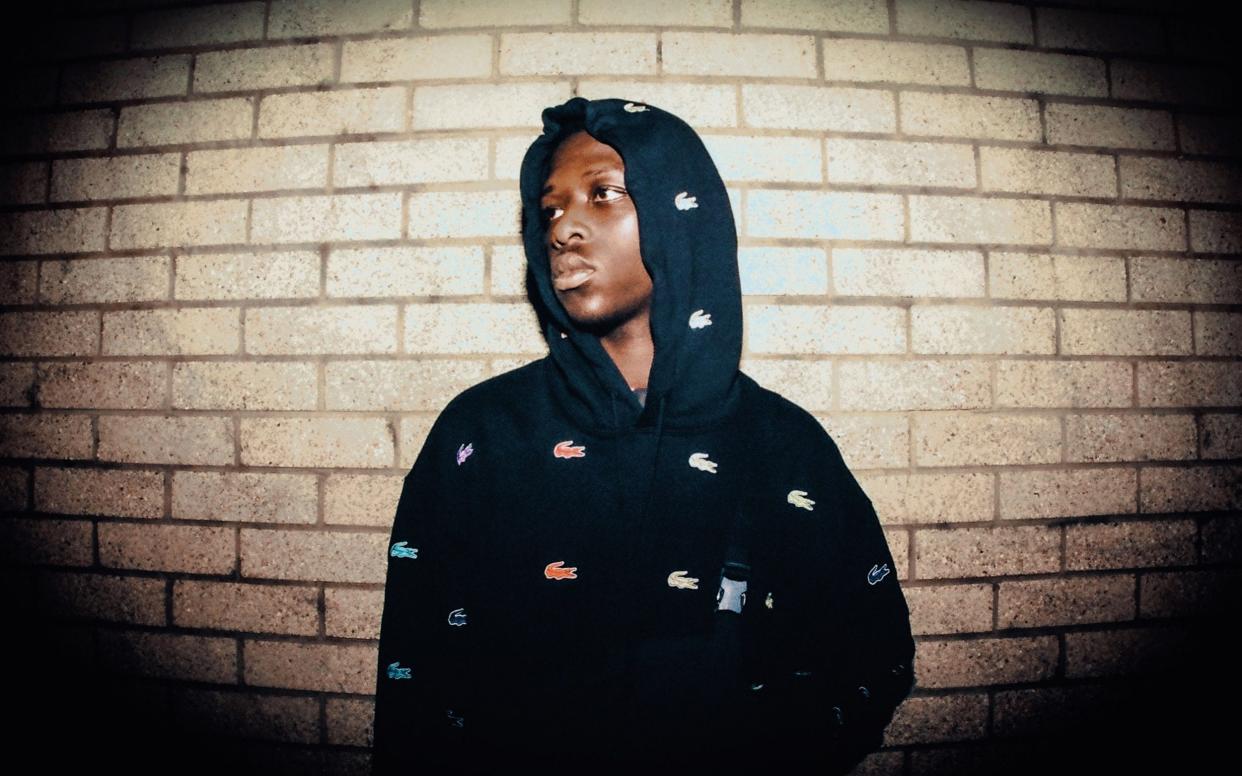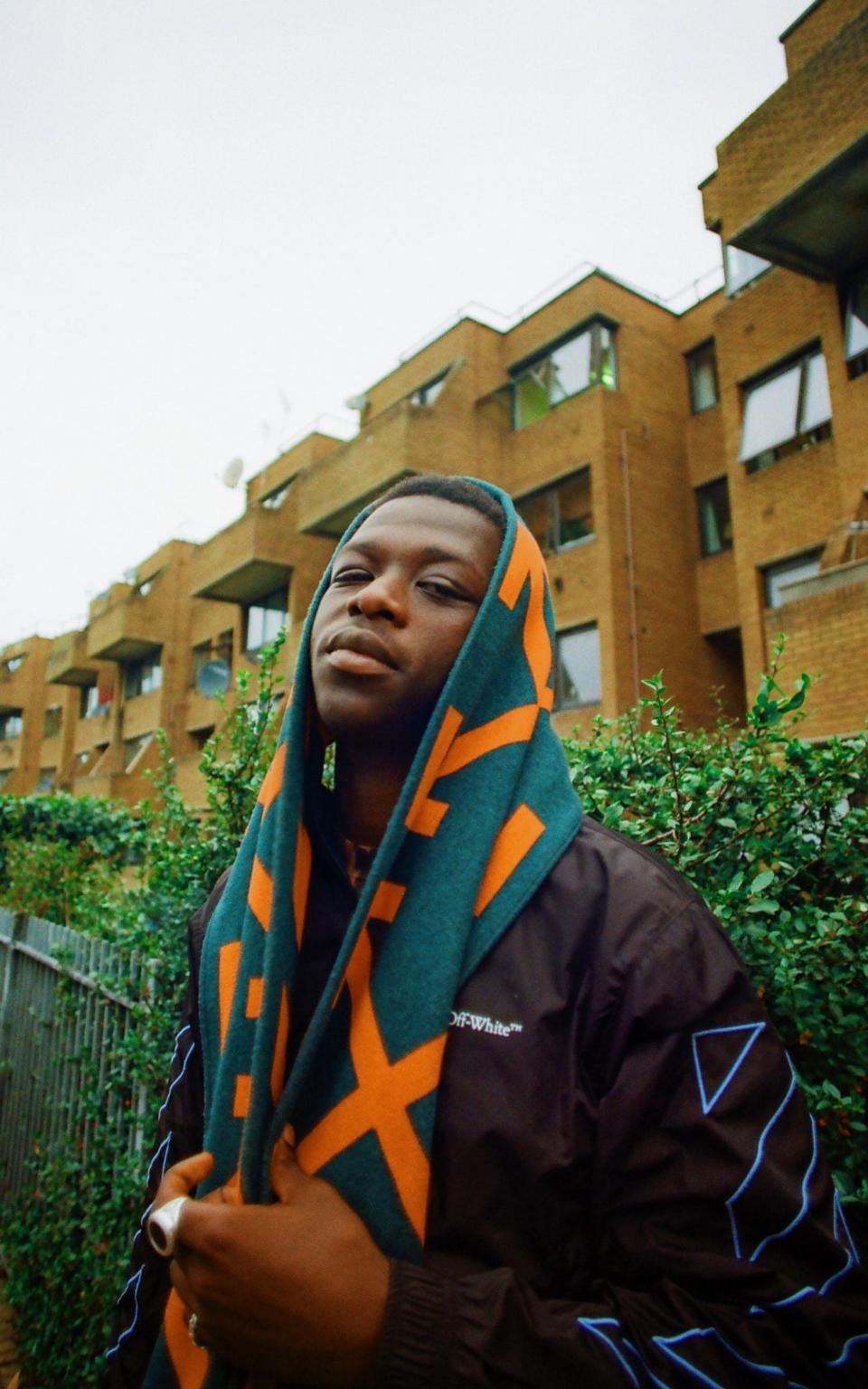‘There was blood everywhere… I took it as a sign’: BBC Sound of 2021 winner Pa Salieu

- Oops!Something went wrong.Please try again later.
Pa Salieu has fitted more drama into his 22 years than most people experience in a lifetime. The young British-Gambian rapper has been shot, stabbed and arrested – and lost several of his closest friends to street violence, drug abuse or suicide. But somehow, out of all this, Salieu has found a way to make music that is inherently joyous and celebratory. That music – a mutant mash-up of dancehall reggae, afrobeats and grime, fusing ambient and electro elements with the odd sliver of 1980s rock – has this week earned him the title of BBC Sound of 2021, from a shortlist of 10 (see below). Previously awarded to Adele, Sam Smith and Michael Kiwanuka, the accolade is given by a panel of industry experts to the British musician they consider most likely to make an impact in the year ahead.
“I feel lucky, man, I feel blessed,” Salieu tells me during a Zoom call from his flat in Acton, west London. But he also sounds baffled by the journey that has led him to this point. “I ask myself how? Why? I’m very confused. I’ve been through so many changes. I’m just finding myself with this music. But I have to believe that everything happens for a reason.” His music, he adds, “came out of nowhere. It saved me.”
In conversation, Salieu can seem somewhat awkward, embarrassed by a sense of his own inarticulacy. But as a performer he is quite the opposite, delivering a dazzling combination of dense street slang and multicultural beats with swagger and charisma. “I hear the rhythm, I hear the flow, when I start writing,” he says. “I know exactly how it’s going to sound, but I can’t explain it. When I open my mouth, the voice is there.”
Last year, Salieu’s pugnacious debut single Frontline became the most-played track on the BBC’s urban radio station 1Xtra. It used warlike imagery to evoke his experiences growing up in the notorious Hillfields suburb of Coventry, which he refers to as COV: City of Violence. In November, he followed it up with Send Them to Coventry, an electrifying and critically acclaimed mixtape that moves between vivid depictions of gangland life and anthems of self-worth such as the joyous Betty, the inspirational Protect Your Energy and the Black Lives Matter protest song B***K. “I want to be a voice for people who can’t be heard,” he tells me. “My experiences ain’t always been good, but I’ve worked with it, and I’ve realised what I have to do. Music will be a source of unity. That’s what I believe.”
Pa Salieu Gaye was born in Slough in 1998, the first child of Gambian immigrants. “My dad worked in factories, my mum does cleaning,” he says. “They both worked so hard.” At the age of one, he was sent to live with his maternal grandparents in Gambia, where he remained until he was nine. He recalls those years in almost magical terms, from the Atlantic beaches to his memories of a folk-singing aunt.

When he returned to the UK, however, settling in Coventry with his parents and younger siblings, his African accent and very dark skin tone set him apart – and his world was turned upside down. “I went from a place where everyone looks like me, to a place where people cross the street when they see you coming,” he says. “I’ve got pride, I used to fight instead of feeling sorry for myself, so I got labelled the angry kid. I was excluded and isolated. School failed me.”
Around this time, he started writing, keeping “a crazy diary” of his troubles. “I didn’t know how to speak my emotions. So I fell in love with writing my thoughts.” Music had little place in the family home, but for a while, as a teenager, Salieu borrowed a family member’s MP3 player, and listened to whatever he found on it: tracks by rapper Tupac Shakur, Jamaican dancehall MC Vybz Kartel and a bit of Stevie Wonder, Bob Marley and Gambian music. “I didn’t know how to download,” he says, “so it was literally my cousin’s playlist”. Only years later would these influences re-emerge in compositions of Salieu’s own, after he discovered his unsuspected gift for music while messing about with a friend’s home recording set up. “It was just software and a big speaker. I started freestyling, and I couldn’t believe the sound of my own voice,” he says now. “Is it a blood thing? A genes thing? Is music in everyone? Is it meant to be?”
By then, Salieu had picked up a criminal record, after being arrested for possession of a knife when he was 17. Although he hints at being at least tangentially involved in the kind of gang lifestyle about which he raps, he refuses to see himself as a criminal. “Keep in mind, I was very young. People were getting stabbed left, right and centre. I was paranoid. I felt like I had to walk with [a weapon] for my own protection. Now I have a criminal record, it stops me from a lot of stuff, I can’t go certain places, can’t get jobs. I’m telling you, I’m one of the purest, cleanest hearts. But this is what I lived.” His walk to school in Hillfields would take him past sex workers, drug dealers and their customers. “I come from a good clean household, but from the outside the world looks at us as this dirty bunch of rats. It all hits you, man. There’s the nature, and there’s the environment. It doesn’t make you a bad person.”
In recent years, two dramatic incidents again changed the course of his life. The first was the fatal stabbing of his closest friend in September 2018. “He was at the start of the music with me, now he’s left in the past. I don’t want that to happen to me.” Then in October 2019, Salieu had 20 shotgun pellets fired into his head, during a drive-by attack outside a Coventry pub. “There was blood everywhere, but I knew I wasn’t going to die,” he says. “I took it as another sign. In hospital, seeing my dad cry, what I was putting my mum through, it changed everything.” When he recovered, he decided to leave Coventry for London, and take up some of the many opportunities to work with music producers that were coming his way. By spring of 2020, he had a hit single and a major deal with Warner Records.
Salieu is certainly a talent. His fusion of African influences with elements of grime is exciting, and his intuitive musicality lends his tracks an accessibility that many of his rap contemporaries lack. Although his focus on gang stories may make him a tough sell for a mainstream audience, such is his passion and ambition that I wouldn’t bet against him overcoming any obstacle to success.
“I’m not glorifying crime and violence, but the truth has to be documented: that’s what I believe,” he says, with all the zeal of a man on a mission. “My world is treacherous. But this is the start of my journey. I have to speak about what’s hurting my people, what the truth really is. It’s coming from the heart, bro. A change is coming, and music is going to have a big part to play.”
Send Them to Coventry (Warner Records) is now available to stream

